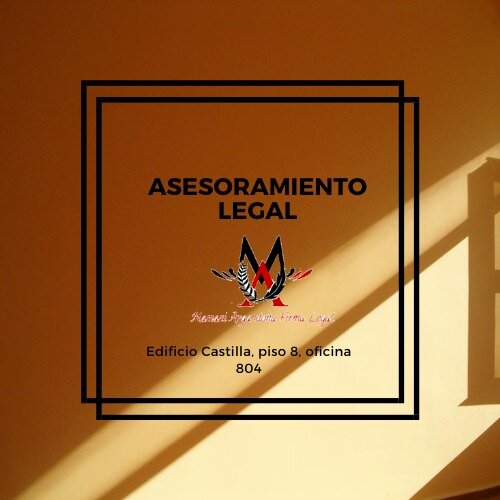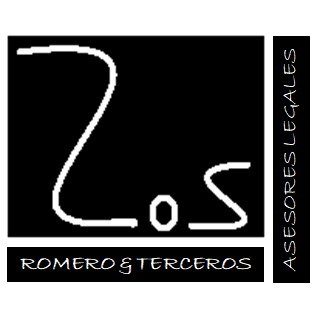Best Project Finance Lawyers in Bolivia
Share your needs with us, get contacted by law firms.
Free. Takes 2 min.
Or refine your search by selecting a city:
List of the best lawyers in Bolivia
About Project Finance Law in Bolivia
Project finance refers to the method of funding large-scale infrastructure or industrial projects through a financial structure where repayment comes primarily from the project's future cash flows, rather than from the general assets or creditworthiness of the project sponsors. In Bolivia, project finance is used in sectors like energy, transportation, mining, and public works, supporting economic growth and modernization. The legal environment in Bolivia provides various frameworks for project finance, typically combining local statutes with international standards to attract both domestic and foreign investment.
Why You May Need a Lawyer
Navigating project finance in Bolivia can be complex because it often involves intricate contracts, regulatory approvals, and coordination between multiple stakeholders, such as sponsors, lenders, government entities, and contractors. You may require a lawyer if:
- You are planning to invest in or sponsor a large-scale infrastructure or industrial project.
- You need to structure a finance agreement that complies with Bolivian law and international standards.
- Your project involves joint ventures, public-private partnerships, or cross-border operations.
- You face regulatory challenges, such as obtaining permits, licenses, or government approvals.
- You want to perform due diligence, manage risks, or resolve disputes related to project finance transactions.
Local Laws Overview
Project finance in Bolivia is influenced by several key aspects of local laws:
- Regulatory Framework: The Bolivian Constitution, Investment Law, and sector-specific regulations (such as those governing hydrocarbons, electricity, and mining) set the foundation for how projects are financed and operated.
- Foreign Investment: Bolivia encourages foreign investment in infrastructure and industrial projects, though some sectors have restrictions and require government participation.
- Public-Private Partnerships (PPPs): PPPs are regulated under specific laws and often require detailed risk-sharing agreements. The state can play an important role as partner or guarantor.
- Collateral and Security Interests: Local law allows various forms of collateral, including mortgages, pledges, and trusts, but there may be limitations on what can be offered depending on the asset and circumstances.
- Currency Controls and Repatriation: Investors should be aware of currency controls, rules on converting and repatriating funds, and the need for compliance with anti-money laundering regulations.
- Dispute Resolution: Bolivia recognizes both local courts and international arbitration, especially in contracts involving foreign parties.
Frequently Asked Questions
What is project finance and how does it apply in Bolivia?
Project finance is a funding structure for large projects where repayment comes from the cash flow generated by the project itself. In Bolivia, it is used in sectors like energy, mining, and infrastructure development.
Who are the main parties involved in a Bolivian project finance transaction?
Common parties include project sponsors, lenders (often international banks or development agencies), the Bolivian government, contractors, and sometimes international financial institutions.
Does Bolivia have special laws for public-private partnerships?
Yes, Bolivia has laws specifically regulating PPPs. These laws define how private companies can collaborate with the government on public infrastructure projects and the terms for sharing risks and rewards.
Can foreign investors participate in project finance in Bolivia?
Foreign investors are generally welcome to participate, though some sectors require special government approval or joint ventures with local entities. Legal advice is recommended to ensure compliance.
How are security interests and collateral handled in project finance?
Bolivian law allows several forms of security for creditors, such as mortgages or pledges, though some public assets or resources may have restrictions.
Is international arbitration available for project finance disputes?
Yes, parties can agree to resolve disputes through international arbitration, especially when foreign investment or lenders are involved.
What are the key regulatory approvals needed for project finance?
Projects may require sector-specific permits, environmental licenses, and in some cases, congressional or governmental approvals, depending on size and impact.
Are there currency or foreign exchange restrictions to consider?
Bolivia has currency controls, and rules regarding the repatriation of profits or payments can affect foreign investors. Legal guidance helps navigate these rules.
What taxes apply to project finance transactions in Bolivia?
Typical taxes include value-added tax (IVA), income tax, and sometimes sector-specific royalties or duties. Tax planning is critical in structuring a project.
How long does it typically take to close a project finance deal in Bolivia?
The timeline varies but can range from several months to over a year, depending on project complexity, required approvals, and negotiation of contracts.
Additional Resources
For additional help or information on project finance in Bolivia, consider reaching out to these organizations:
- Ministry of Public Works, Services and Housing (Ministerio de Obras Públicas, Servicios y Vivienda) - for major public infrastructure projects.
- Vice Ministry of Investment and Export Promotion (Viceministerio de Inversión y Promoción de Exportaciones) - guidance on foreign investment.
- Bolivian Development Finance Institution (Banco de Desarrollo Productivo) - financing programs and advice for large projects.
- Chamber of Commerce (Cámara de Comercio) - business environment and networking opportunities in Bolivia.
- Local and international law firms with project finance expertise.
Next Steps
If you are considering engaging in a project finance transaction in Bolivia, here is how to proceed:
- Identify your goals and project requirements clearly.
- Collect all necessary documentation about the project, including financial plans, technical studies, and stakeholder agreements.
- Consult with a local lawyer who specializes in project finance and understands both Bolivian and international standards.
- Request a legal risk assessment of your project, covering compliance, contracts, and financing structures.
- Obtain guidance on structuring the transaction, securing permits, and negotiating with relevant parties.
- Prepare for due diligence reviews, and address any legal or regulatory concerns before signing any commitments.
An experienced lawyer will ensure your rights are protected, help optimize financing structures, and guide you through the complexities of Project Finance in Bolivia.
Lawzana helps you find the best lawyers and law firms in Bolivia through a curated and pre-screened list of qualified legal professionals. Our platform offers rankings and detailed profiles of attorneys and law firms, allowing you to compare based on practice areas, including Project Finance, experience, and client feedback.
Each profile includes a description of the firm's areas of practice, client reviews, team members and partners, year of establishment, spoken languages, office locations, contact information, social media presence, and any published articles or resources. Most firms on our platform speak English and are experienced in both local and international legal matters.
Get a quote from top-rated law firms in Bolivia — quickly, securely, and without unnecessary hassle.
Disclaimer:
The information provided on this page is for general informational purposes only and does not constitute legal advice. While we strive to ensure the accuracy and relevance of the content, legal information may change over time, and interpretations of the law can vary. You should always consult with a qualified legal professional for advice specific to your situation.
We disclaim all liability for actions taken or not taken based on the content of this page. If you believe any information is incorrect or outdated, please contact us, and we will review and update it where appropriate.
Browse project finance law firms by city in Bolivia
Refine your search by selecting a city.

















